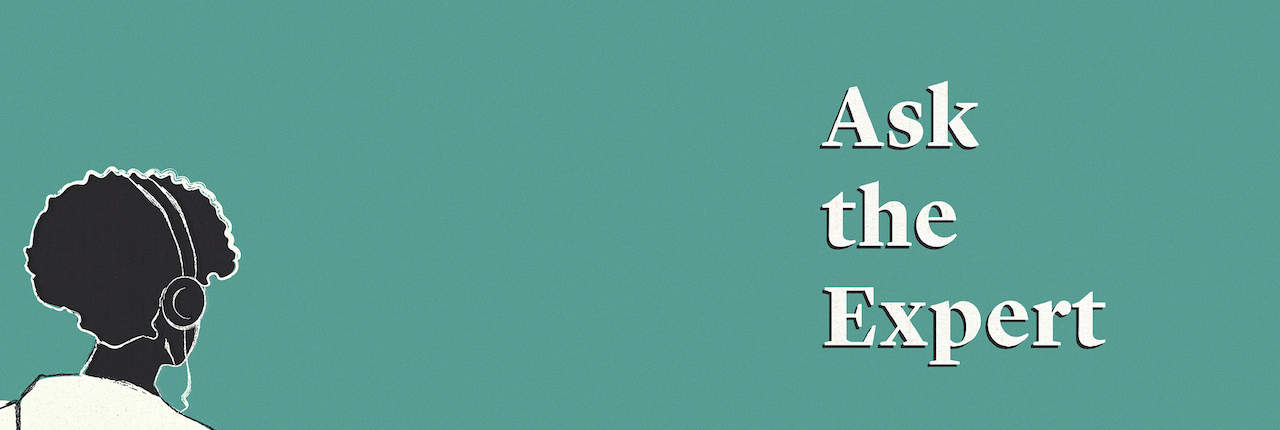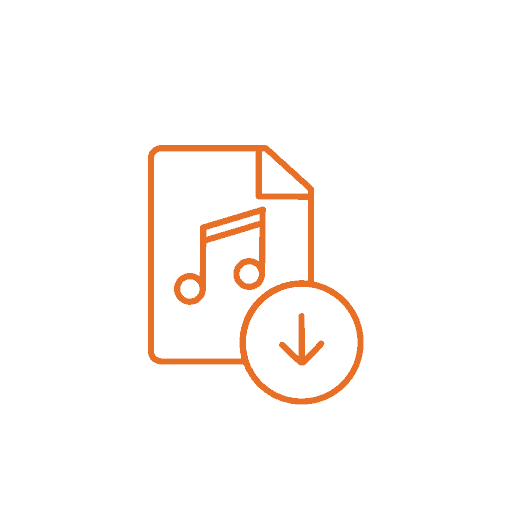A Conversation about Grief and Loss with Chris Lopardi
December 21, 2023
The “Community Spotlight” edition of the “Ask the Expert” podcast series shares the stories of our community members. This episode is part of a special series on grief and loss. Chris Lopardi joined Krissy Dilger of SRNA to share about his family’s experience with acute disseminated encephalomyelitis (ADEM).
Transcript
[00:00:02] Krissy Dilger: Hello and welcome to the SRNA “Ask the Expert” podcast series, “Community Spotlight Edition.” This episode is part of a special series on grief and loss. My name is Krissy Dilger, and I moderated this podcast. SRNA is a nonprofit focused on support, education, and research of rare neuroimmune disorders. You can learn more about us on our website at wearesrna.org.
[00:00:31] Our 2023 “Ask the Expert” podcast series is sponsored in part by Amgen, Alexion, AstraZeneca Rare Disease, and UCB. For this podcast, we were pleased to be joined by Chris Lopardi. You can view his bio in the podcast description. Hello, thank you for joining me today and for sharing your story. Can you start off by just telling us a little bit about yourself, your family, and how you came to learn about rare neuroimmune disorders?
[00:01:05] Chris Lopardi: Thank you very much for having me. I really appreciate it and I’m happy to be able to tell Mason’s story and our family story of what happened to us. So, my name is Chris. I’m a recently retired Air Force veteran. I did 22 years in the military. I just retired in August. We’re from Buffalo, New York. So, we moved back here to Buffalo. I’m married with four boys, Ryan, Aiden, Mason, and Carson. And we first learned about rare neuroimmune disorders when my son Mason was diagnosed with ADEM.
[00:01:47] Krissy Dilger: Got it and I’m sure with four boys in your family you must experience some loud times.
[00:01:55] Chris Lopardi: Yes. It’s always chaotic at the house for sure. Yes.
[00:02:02] Krissy Dilger: So, you mentioned your son was diagnosed with you said ADEM, correct? So, that’s acute disseminated encephalomyelitis for those who might not know the acronym. Can you just tell us a little bit about the diagnosis journey you and your family experienced with that diagnosis?
[00:02:26] Chris Lopardi: Yeah, sure. So, it was definitely very quick compared to what I’ve heard from other people and how they’ve went through their journey. Basically, one day Mason wasn’t feeling well, had a headache, and he kept complaining about some tingling in his legs. We didn’t know what it was. We brought it up to the doctor. I had just been getting over pneumonia and Mason had some illness as well, but it didn’t feel like pneumonia.
[00:02:59] He was still running around having fun, going outside with his friends, going to school, nothing was different. This was right at the beginning of COVID. So, it was a very kind of chaotic time in terms of health care for everyone. So, we called this doctor a bunch of times and told him the symptoms and they kind of brushed off the tingling in the legs.
[00:03:20] They didn’t know what it was, but they just said it sounded like a flu or cold. A lot of his other symptoms were headache, little fever, just kind of a little lethargic sometimes but not always. There were times he was still going out and playing. From there, he got to a point where he was really kind of jittery. Like he said he couldn’t sit down, his legs were just tingling way too much.
[00:03:49] So, we ended up taking him to the ER, ended up finding out that Mason also had pneumonia. He had walking pneumonia. Was totally fine in terms of the way he was acting, but he had pneumonia. They thought maybe the tingling in the legs had something to do with the pneumonia. Again, they kind of brushed it off. And so, we got the medicine for his pneumonia, and I took him home and I went back to work. I was working shift as a firefighter.
[00:04:18] So, I went back to my fire station. I was maybe gone out of the house five minutes and my wife called me frantically that Mason wasn’t responding. He wasn’t answering. He had just kind of a blank stare. She couldn’t wake him up for anything. So, we thought maybe he was having a seizure or something like that, so rushed home, got him back to the ER and that’s what the doctors thought too. They thought it was a seizure.
[00:04:47] We ended up getting transported to children’s hospital in Boise, Idaho where we were stationed at the time and he spent the night and then the next morning, he was alert, oriented, back to normal it felt like. The doctors thought maybe he had a reaction to the medicine they gave him for the pneumonia, and he was checked by a neurologist. They didn’t do any kind of scans of his brain, but he was checked, they ended up sending us home.
[00:05:18] Then the very next morning, the exact same thing happened again. It seemed like a seizure again, called 911. This one was more serious though, rushed him to the hospital. He got life-flighted to the intensive care unit in Boise. They finally did some CAT scans of his head and that’s when he was finally diagnosed with ADEM, and an aggressive steroid treatment was started right away on him.
[00:05:52] Krissy Dilger: So, obviously, this is a difficult topic. But what can you tell us about how you cope with your son’s diagnosis and the subsequent loss of your son? How do you cope with anniversaries or birthdays or other dates that have been significant in your life with your loved one?
[00:06:17] Chris Lopardi: Yeah. Well, let me finish that story a little bit about Mason real quick so people kind of know how the process one after that. So, we finished the steroid treatment, and he was not getting better. The doctors wanted to keep pressing with the steroid treatment a little longer. And then after about three days of steroid treatment, Mason ended up having, his brain just swelled too much, and he ended up becoming brain dead.
[00:06:47] Two days later, my wife and I decided to take him off of life support. So, obviously very difficult time for us. Mason before that was an extremely healthy seven-year-old boy. He was running track meets at seven years old and winning them. He was getting first place, avid soccer player, just the epitome of health if you could think of any little boy.
[00:07:10] So, the fact that he got this, and it happened so quickly was extremely difficult. I will say that for those of you that are dealing with grief, everyone deals with it differently. My wife and I, we both deal with it differently. My children dealt with it differently. You have to do what’s best for you to help you get through the situation. For me personally, I leaned on other fellow dads that lost their children.
[00:07:40] They were mentors to me and helped me through the process. I started my own podcast with another grieving dad who lost a son, trying to bring some mental health awareness to dads that dealt with child loss and that’s helped me a lot in terms of coping with anniversaries or other dates. It’s really specific so to your loss and what feels right for you when you’re going through that loss.
[00:08:11] For us, we celebrate Mason’s birthday every single year with a cake, and we put his picture in front of the cake, and we sing Happy Birthday. We take balloons to his grave. We visit his grave on every holiday. Those types of things they help us but to be honest, if you’re listening to this and you’re dealing with grief, you already know that nothing you can do can really take away the pain that you’re going through.
[00:08:42] You just kind of learn to deal with the pain every single day. I went through therapy, I went through EMDR therapy to help me because it was a very traumatic loss obviously and that helped me as well. So, I do recommend that if you’ve ever been through some sort of trauma, whether it be grief or any other trauma, look up EMDR therapy, it was really helpful for me.
[00:09:12] I can’t speak highly enough of that in terms of helping me get some sort of mental health back where I can function again because I still got three other kids and my spouse and the family, I got to take care of. My spouse was the same thing. She had to find her own path on what worked for her and it’s really different for both of us. We deal with it very differently.
[00:09:40] Krissy Dilger: Thank you for sharing that. And I think you’ve offered some great insight for others who might be unfortunately going through something like this. Is there anything else you would like to share or any other kind of nuggets of things you wish you would have been told, for anyone who might be going through something similar?
[00:10:04] Chris Lopardi: Yeah, I mean, I think especially like in the ADEM community, it feels like we were only in it for a short period of time. So, but from when Mason was diagnosed to when he passed was only one week. So, it was really quick and it’s almost hard to, I don’t want to say work with other parents, but like you want to help other parents that are dealing with those type of neurological disorders, but those people really don’t want to hear from you because you lost your child in that situation.
[00:10:42] So, you bring up the worst-case scenario for them and they really don’t want to hear our type of advice sometimes, but to be honest, we’re the best ones to get the advice from. We went through what didn’t work, right? So, if we could have went back in time and I could have pushed the doctors a different way, some of the steroid treatment maybe started doing, I can’t remember the process, but basically the blood cleaning, something like that.
[00:11:14] If I could have had those moments back and pushed it, would it have made a difference? I don’t know. I’m never going to know now, you know? Those types of things are difficult. We still want to be part of the community. So, I encourage those that are listening that whether you’re dealing with grief from loss or if you’re just listening because you want to hear another perspective on it.
[00:11:37] You know, I don’t want to say shun those people out but be willing to hear some of their advice of some of the difficulties and heartaches they went through because we’re just as much part of the community as anyone else when it comes to this. So, and I really want to throw that out there again in terms of mental health, like you have to do what’s best for you when you’re dealing with this extreme grief. So, it’s not going to be easy.
[00:12:05] I’m not going to say it’s easy. There’re good days, there’s bad days, good moments, bad moments, but you can definitely still live a productive happy life. You can laugh again. You can have fun again. It’s a little different, but it can happen again, and you have to be willing to get the help. And a lot of times for us like for myself, I really like helping others when they’re dealing with the same kind of stressors that we’re having.
[00:12:37] We set up a nonprofit organization for Mason. It’s called Miles for Mason Memorial Foundation. And we’re working on just ADEM stuff that’s all we’re doing. We want to get the awareness out there. We want to teach parents about what ADEM is. We want to teach doctors because to be honest we went through three ER doctors. They had no clue what they were looking at.
[00:12:57] And if we would have had that earlier detection by maybe one of those doctors, we might have had a better fighting chance than what we ended up having. You know, it was probably about three or four days before Mason started the steroid treatment. So, maybe if I would have had those three or four days earlier, we wouldn’t be in this situation. We’re never going to know but that’s part of the reason why.
[00:13:20] So, we started this nonprofit to help others as well. So, ultimately, if you’re dealing with grief, you got to do what’s best for you to get you and your family through what’s going to be guaranteed the most difficult moments in your life if you’re dealing with any sort of child loss or any type of grief of someone important to you.
[00:13:37] So, be willing to seek that help, talk to others. You can reach out to me, anyone, I’m open book when it comes to my grief and my story and more than willing to help out any way we can.
[00:13:57] Krissy Dilger: Well, thank you so much. I so appreciate you joining us and sharing your story and Mason’s story and also just offering that advice and willing to be reached out to by others who might need it. That’s all I have for today. And hopefully this podcast can help others in some way.
[00:14:22] Chris Lopardi: I appreciate the time and thank you for letting me talk about Mason.
[00:14:25] Krissy Dilger: Of course. Thank you to our 2023 “Ask the Expert” podcast sponsors Amgen, Alexion, AstraZeneca Rare Disease, and UCB. Amgen is focused on the discovery, development and commercialization of medicines that address critical needs for people impacted by rare, autoimmune, and severe inflammatory diseases. They apply scientific expertise and courage to bring clinically meaningful therapies to patients. Amgen believes science and compassion must work together to transform lives.
[00:15:06] Alexion, AstraZeneca Rare Disease is a global bio-pharmaceutical company focused on serving patients with severe and rare disorders through the innovation, development and commercialization of life transforming therapeutic products. Their goal is to deliver medical breakthroughs where none currently exist, and they are committed to ensuring that patient perspective and community engagement is always at the forefront of their work.
[00:15:34] UCB innovates and delivers solutions that make real improvements for people living with severe diseases. They partner with and listen to patients, caregivers, and stakeholders across the health care system to identify promising innovations that create valuable health solutions.
LISTEN & SUBSCRIBE
TO PODCAST
DOWNLOAD MP3
DOWNLOAD TRANSCRIPT











